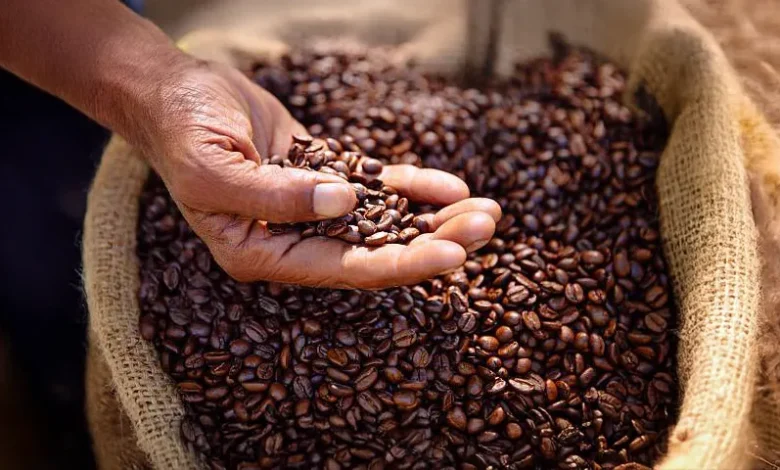Dominica Coffee

Dominica Coffee has gained attention as a high-value crop complementing the island’s traditional export commodities like bananas and root crops. Although still a niche product, various government initiatives and agricultural bodies increasingly support coffee cultivation. The island’s volcanic origins provide forested highlands for robust coffee production, especially near Morne Diablotin, Laudat, and Giraudel/Eggleston. Temperatures remain cooler at higher elevations, and fertile volcanic soils enrich the beans with unique flavour characteristics that appeal to speciality coffee enthusiasts.
Production and Places of Growth of Coffee in Dominica
Coffee is primarily grown by 100 smallholder farmers, each managing plots averaging between two to five acres. These farms are most frequently clustered in the upper reaches of Saint Paul Parish and in pockets of Saint George Parish, where rainfall patterns are conducive to coffee. According to rough data from local cooperatives, annual coffee production reached about 20 metric tons in 2022, reflecting a steady 10% increase over the last five years. Many farmers use sustainable practices influenced by the Organic Dominica Initiative, favoring compost-based fertilizers and integrated pest management.
Organizational Support for Coffee Cultivation
Farmers benefit from services provided by the Dominica Rural Enterprise Project (D-REP) and the Food and Agriculture Organization (FAO), which offer training on pruning methods, disease identification, and improved post-harvest storage. Partnerships with the National Association of Youth in Agriculture (NAYA) encourage new entrants into coffee growing, bridging generational gaps and promoting crop diversification. The Agricultural Produce Procurement Facility aids local marketing efforts, enabling growers to sell fresh beans to roasters and artisanal beverage producers.
Companies and Market Potential of Coffee
A handful of local businesses have emerged to capitalize on the growing interest in Dominica Coffee. Brands such as Island Brew Dominica and Nature Isle Coffee roast small batches of beans, distributing them locally to supermarkets and hotels. Some coffee farms also partner with eco-lodges, like Jungle Bay, to offer farm-to-cup experiences. This integrated model appeals to visitors seeking a deeper connection to the island’s agricultural heritage. Export volumes are modest but show promise, with up to 5 metric tons shipped abroad annually, primarily to specialty coffee retailers in North America.
Future Outlook on Dominica’s Coffee Market
Coffee farmers consistently report that high-altitude Dominica beans fetch premium prices compared to standard robusta varieties from other regions. The sector’s future hinges on continued investment in research, climate-resilient farming, and brand-building. Organizations such as the Dominica Banana Marketing Corporation (DBMC) occasionally provide logistical assistance for exports, bridging lessons learned from the banana trade. This growing emphasis on quality beans, paired with eco-friendly cultivation, positions Dominica Coffee to attract specialty markets while underscoring the island’s reputation as the Nature Isle of the Caribbean.
Dominica’s coffee sector remains small yet vibrant. Stakeholders anticipate further expansion as environmental stewardship and economic diversification continue to guide national policy. Coffee stands poised to become a celebrated emblem of Dominica’s unique agricultural profile.




